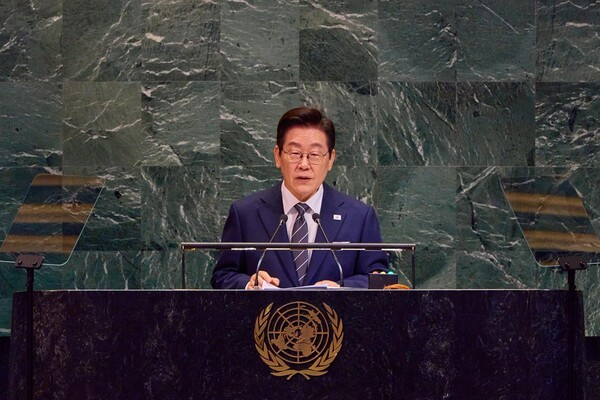“Liquidity Lacking at Night” — Government Pushes for 24-Hour FX Market and Offshore Won Settlement
Input
Modified
Foreign investors to trade bonds and equities freely Comprehensive roadmap to be unveiled within the year Liquidity shortage in overnight trading remains a hurdle

The government is moving to restructure the foreign exchange market in a bid to secure South Korea’s inclusion in the Morgan Stanley Capital International (MSCI) Developed Markets (DM) Index. The plan centers on opening the domestic FX market on a 24-hour basis and establishing a system that enables won-denominated settlements overseas, thereby improving foreign investors’ access to won transactions. Yet skepticism persists. While there is consensus that a 24-hour regime represents a first step toward internationalizing the won and modernizing the financial market, concerns remain that limited liquidity in overnight trading, heightened volatility, and structural constraints on the won may blunt the policy’s impact.
Government to Build Offshore Won Settlement System
On the 26th, the Ministry of Economy and Finance announced in briefing materials tied to the “Korea Investment Summit” that it would expand the operating hours of the domestic FX market to a round-the-clock system and build an offshore won settlement mechanism. The government intends to publish a comprehensive roadmap within the year as part of its broader effort to achieve MSCI DM Index inclusion.
Currently, spot trading in the dollar-won market is confined to domestic brokerages authorized by the government, with participation limited to domestic financial institutions. Trading hours run from 9 a.m. to 2 a.m. the following day, restricting access for U.S. and other overseas investors. For decades, foreign-to-foreign won transactions were virtually banned, in part to deliberately prevent the formation of an offshore won market—an enduring legacy of the Asian financial crisis.
This restricted access has long been cited as a major obstacle to MSCI DM inclusion, as MSCI requires FX markets to allow unrestricted offshore convertibility. Despite repeated attempts, South Korea has failed to gain DM status and in June did not even make it onto MSCI’s “watch list,” remaining in emerging-market classification. MSCI’s latest assessment cited limited market accessibility, pointing to shortcomings in FX market openness, short-selling stability, and data availability in equity trading.

MOEF Directs Local FX Brokers to Prepare
The government now plans to operate the FX market around the clock to eliminate trading gaps for U.S. and other foreign investors. Extended trading hours are also expected to draw some non-deliverable forward (NDF) demand into the domestic spot market. In tandem with 24-hour trading, the government will overhaul the infrastructure to bolster foreign investors’ won trading capacity.
Central to this is the creation of an “offshore won settlement institution” system, under which foreign financial institutions may open won accounts in Korea and directly manage won positions. Related regulations will be eased to allow foreign-to-foreign won trading, holding, and financing. The Bank of Korea will also establish a new 24-hour “offshore won settlement network” to allow overnight settlements. Currently, the central bank’s settlement system (Bok-Wire) operates only from 9 a.m. to 5:30 p.m., creating a bottleneck for night trading.
The Ministry of Economy and Finance has already directed Seoul Foreign Exchange Brokerage and Korea Money Brokerage, the country’s two licensed FX brokers, to complete preparations for 24-hour operations by June next year. An MOEF official said, “The government has been pursuing FX market reform under a roadmap for 24-hour access. No firm implementation date has been set, but we will work out a detailed plan through coordination with market participants.”
MSCI Rationale but Practical Limits
The 24-hour FX initiative also aligns with President Lee Jae-myung’s pledge to eliminate the “Korea discount” and channel capital into more productive sectors such as equities. Still, experts caution that extended trading hours alone cannot guarantee a vibrant market. The core concern is thin liquidity and heightened volatility during overnight sessions.
Indeed, since January last year the authorities have gradually allowed foreign institutions into the domestic FX market and extended trading until 2 a.m. from 3:30 p.m. Previously, the daily average dollar-won fluctuation was 7.1 won; over the past year it widened to 11.7 won, a 64.8% increase. Even factoring in extraordinary drivers such as Trump-related trade turbulence, emergency rule speculation, impeachment turmoil, and reciprocal tariff risks, volatility during extended hours alone was 42.7% higher than during regular sessions.
The imbalance stems from scant liquidity at night, even as overseas data releases and policy events drive volatility. Thin counterparties deter trading, creating a vicious cycle of lower liquidity. A dealer at a major local bank noted, “Liquidity is so scarce overnight that the risk of loss is too high. Unless absolutely necessary, dealers avoid trading. While 24-hour access is positive in terms of responding to U.S. developments as they unfold, genuine responsiveness requires liquidity to match.”
Some warn that the effort may underscore the won’s limitations rather than generate new demand. While 24-hour access will raise offshore investors’ ability to trade won, the currency is not yet a mainstream global unit like the dollar, yen, or euro. Its trading base is shallow and financial institutions’ hedging capacity constrained—making it inevitable that transactions remain closely tethered to the dollar.






















Comment